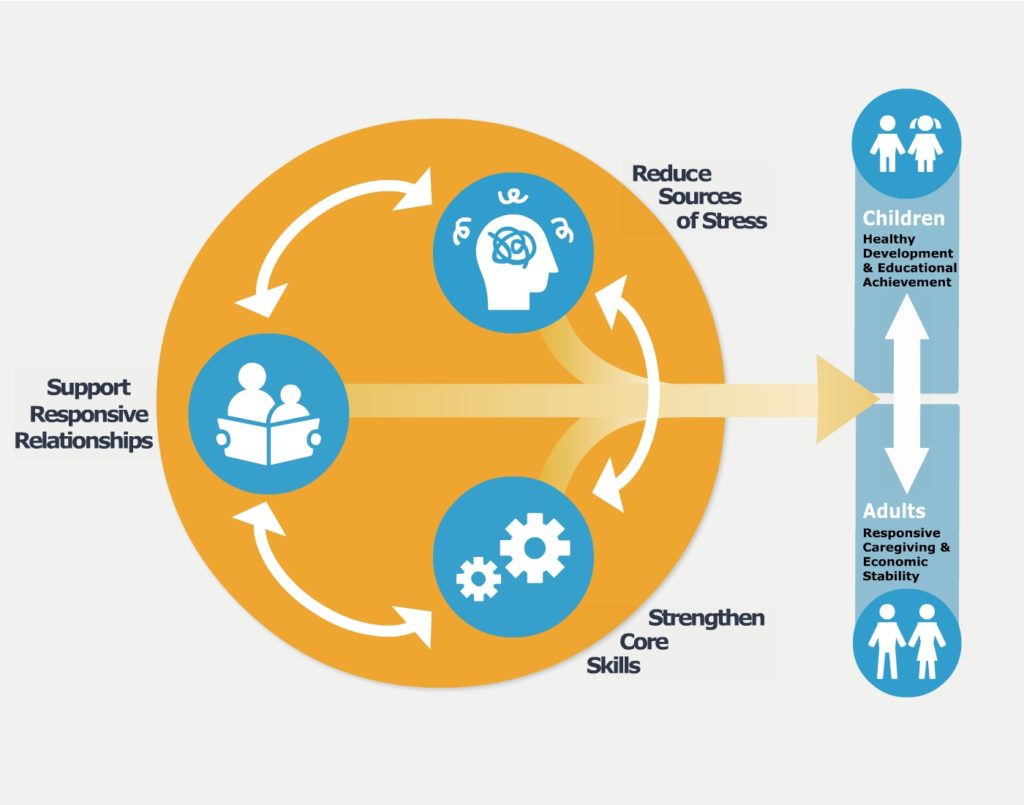The Role of Love and Stability in a Child’s Life
Every child deserves to feel safe, cherished, and supported. Love and stability aren’t just nice additions to a child’s upbringing; they are essential foundations for their growth, development, and future success. But for many children, these fundamental needs go unmet, leaving them vulnerable to uncertainty and fear.
At Palmer Home, we often see firsthand how love and stability can transform a child’s life. When children experience a consistent, nurturing environment, they begin to heal, thrive, and dream again.
How does showing love impact a child’s brain?
Love isn’t just an emotion; it’s a powerful force that physically shapes a child’s brain, influencing their emotional, cognitive, and social development. From infancy through adolescence, children’s brains are constantly forming neural connections based on their experiences. When they are surrounded by love, encouragement, and security, their brains develop in a way that fosters resilience, confidence, and emotional well-being.

Source: Relevate Counseling Ministries
Studies in neuroscience show that children who experience consistent love and nurturing care have higher levels of oxytocin, the “bonding hormone,” which strengthens emotional regulation and trust. Love also reduces cortisol, the stress hormone, which, when chronically elevated due to neglect or trauma, can impair brain development and lead to anxiety, depression, or difficulty in forming relationships.
When a child feels loved, it transforms their ability to learn, grow, and engage with the world. Love provides:
1. A Sense of Security
Knowing they are loved gives children confidence to explore the world and take healthy risks. A secure attachment with caregivers allows a child’s brain to develop strong connections in the prefrontal cortex, the part of the brain responsible for decision-making, impulse control, and emotional regulation. When a child feels safe, their brain can focus on learning and personal growth rather than survival.
2. Emotional Growth
Love helps children navigate their emotions, express themselves, and build strong relationships. When caregivers consistently respond to a child’s needs with warmth and affection, the child learns to self-regulate emotions, trust others, and develop empathy. Over time, these positive interactions create stronger neural pathways that allow them to process emotions in a healthy way, reducing the likelihood of anxiety or aggression.
3. Hope for the Future
When children experience love, they believe in possibilities beyond their current circumstances. Love instills a sense of self-worth, showing children that they matter and have a future filled with opportunity. This hope fosters motivation, perseverance, and resilience, which are key factors in overcoming challenges and pursuing personal and academic success.
For children who have faced neglect or trauma, love is often unfamiliar. Their brains may have adapted to stress and unpredictability, making it difficult for them to trust others or feel safe. It takes time, patience, and consistency to help them understand that they are truly valued. Through repeated, loving interactions, their brains can actually rewire, creating new patterns that replace fear with trust and isolation with connection.
Love is more than a feeling—it is a biological necessity for a child’s healthy development. By providing a nurturing, stable environment, we can help shape young minds, heal past wounds, and create a foundation for lifelong well-being.

Source: Harvard Pediatrics
Why Children Need Stability
Love alone is not enough—children also need stability. A consistent environment provides reassurance that their needs will be met today, tomorrow, and in the future. Stability looks like:
- A Safe and Secure Home – A place where children feel protected and cared for.
- Routine and Structure – Predictability helps children develop confidence and a sense of control.
- Supportive Relationships – Trustworthy caregivers, mentors, and friends who provide encouragement and guidance.
Without stability, children often struggle with anxiety, difficulty in school, and challenges in forming healthy relationships. But with stability, they gain the foundation needed to focus on learning, growing, and becoming who they are meant to be.
Palmer Home Provides Love and Stability
At Palmer Home, we are committed to creating an environment where children can experience the security of a loving home. Through Campus Care, Foster Care, Transitional Care, and Family Care, we ensure that every child receives:
- Loving caregivers who offer encouragement and emotional support.
- A safe, consistent environment where they can heal and grow.
- Education, counseling, and community to equip them for a bright future.
Every smile, every bedtime story, every encouraging word helps a child rebuild trust and believe in love again.
How You Can Make a Difference
Not every child has experienced the love and stability they deserve—but together, we can change that. You can help by:
- Becoming a foster parent to provide a safe, loving home.
- Supporting Palmer Home through donations or volunteering.
- Praying for the children in our care and for families in need.
Love and stability have the power to transform lives. When a child knows they are loved and secure, they don’t just survive—they thrive. Join us in creating a brighter future for children in need.



